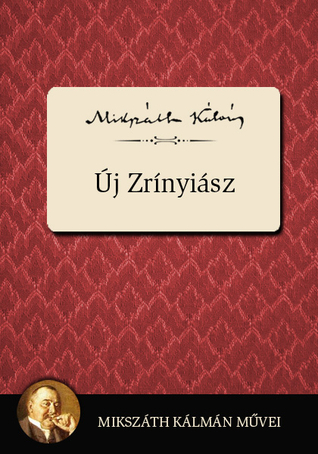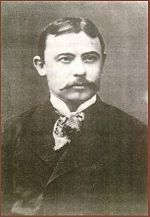
„A mai izgatott és hamar sértődő világban elképzelhetetlen az szólásszabadság, amellyel Mikszáth élt” – írta 1941-ben, Mikszáth regényéről szólva Schöpflin Aladár. A múlt század végén feltámadó, és katonái élén megjelenő Zrínyi az ezeréves Magyarországot ünneplő közéletbe csöppen bele. A szigetvári hős akaratlanul is szembekerül a társadalom, a politika és a gazdaság jeleseivel, s így jó alkalmat ad az írónak, hogy szatírája körébe vonja a közélet mindenféle köreit, ne kímélje a minisztereket, más nagyurakat, ne kímélje olyan barátait sem, mint Szilágyi Dezső vagy Darányi Ignác, akikkel esténként együtt szokott ülni az István főhercegben. A regény, amely eredetileg 1898-ban jelent meg Mikszáth kérészéletű lapvállalkozásában, az Országos Hírlapban, majd ugyanabban az esztendőben könyv alakban is, a megjelenése pillanatában a nyílt vagy burkolt támadások célpontjába került. De amíg a sértettek dohogtak, fenyegetőztek vagy ellentámadásra készülődtek, az olvasóközönség a szívébe zárta az író remekművét, s az Új Zrínyiász a friss szenzáció elmúltával is, közel száz éve, Mikszáth egyik legolvasottabb műve maradt. Eredeti megjelenés éve: 1898
Author

Kálmán Mikszáth Kiscsoltó was a major Hungarian novelist, journalist, and politician. Mikszáth was born in Sklabiná into a family of the lesser nobility. He studied Law at the University of Budapest from 1866 to 1869, although he did not apply for any exam, and became involved in journalism, writing for many Hungarian newspapers including the Pesti Hírlap. His early short stories were based on the lives of peasants and artisans, and had little appeal. However, they demonstrated his skill in crafting humorous anecdotes, which would be developed in his later, more popular works. Many of his novels contained social commentary and satire, and towards the end of his life they became increasingly critical of the aristocracy and the burden he believed the latter placed on Hungarian society. Theodore Roosevelt enjoyed his novel, St. Peter’s Umbrella so much that he visited Mikszáth during his European trip in 1910 solely to express his admiration.[1] Mikszáth was a member of the Liberal Party, and in 1887 was elected to the National Assembly of Hungary (one of the two top legislatures in Austria-Hungary). Until 1879 he was the representative for the Illyefalva District in Transylvania, and from 1892 until his death he represented the Fogaras District. He was buried in Kerepesi Cemetery in Budapest, along his sons János (1886-1890) and Albert (1889-1921).